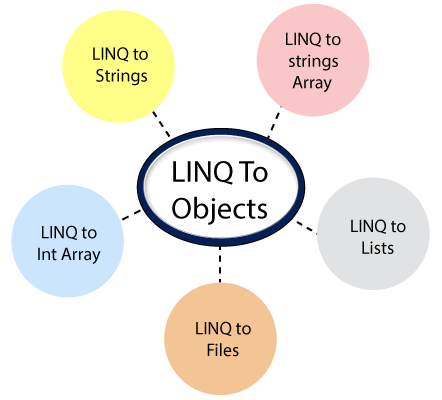LINQ to ObjectsIn LINQ, if we use "LINQ to Objects" in our applications, it will give us a chance to use IEnumerable or IEnumerable<T> collections directly in LINQ queries, without the use of any intermediate LINQ provider or API such as LINQ to SQL, or LINQ to XML. By using LINQ to Objects, we can apply the query to any of the Enumerable collections such as List<T>, Array or Dictionary <TKey, TValue>. The LINQ to Objects provides a new way to get the data from the collections with LINQ Queries, but before that, there is a need to write a lot of foreach loops to get the data from the collections. LINQ to Objects provides more advantages when compared with a traditional foreach loop. These are:
If we use LINQ in complex operations, then we will see the benefits of using the LINQ, instead of traditional iteration loops. Now we will use LINQ with objects. Here are the various objects which we can use with LINQ.

Next TopicLINQ to Strings
|
 For Videos Join Our Youtube Channel: Join Now
For Videos Join Our Youtube Channel: Join Now
Feedback
- Send your Feedback to [email protected]
Help Others, Please Share










